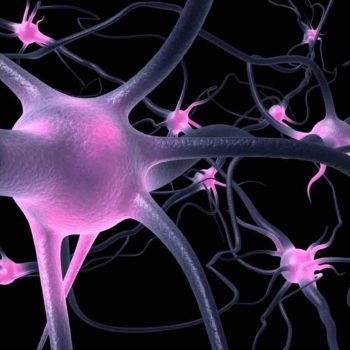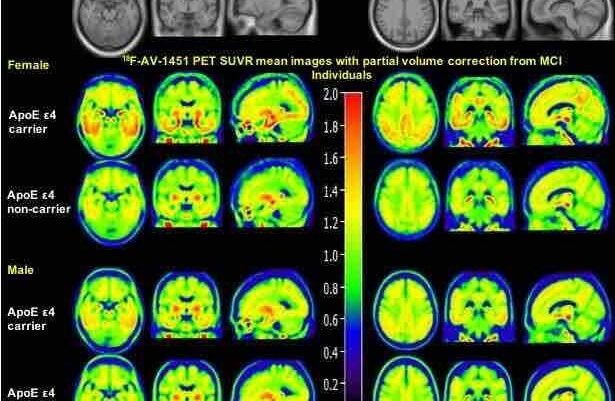Clusterin protein clumps clog up brain synapses in people with Alzheimer's disease, and are even more present in those with the ApoE4 gene.
Researchers now have a clearer understanding of how the Alzheimer’s gene ApoE4 disrupts brain cells, leading to cell death and dementia symptoms.
A study published in the journal Brain Communications looked at brain synapses – connections between brain cells that transmit chemical and electrical communication signals. These signals are a vital part to forming memories and maintaining brain health.
Brain Synapses Clogged by Clusterin Protein Clumps
The researchers, based at the University of Edinburgh, UK, found that in brains of people with Alzheimer’s disease, these synapses contained clumps of clusterin, a protein that may contribute to Alzheimer’s symptoms.
People with the ApoE4 gene had more clusterin and beta-amyloid plaques (another hallmark of Alzheimer’s) in their synapses than Alzheimer’s patients without the ApoE4 gene. By contrast, cognitively healthy people — those without dementia symptoms –had very few protein clumps in their synapses.
It’s already established that people with Alzheimer’s disease lose synapses as the disease progresses. However, the clumping of damaging clusterin proteins in synapses was not known until now.
“We have identified another player in the host of proteins that damage synapses in Alzheimer’s disease,” said lead researcher Tara Spires-Jones, professor and Program Lead at the UK Dementia Research Institute at the University of Edinburgh. “Synapses are essential for thinking and memory, and preventing damage to them is a promising target to help prevent or reverse dementia symptoms. This work gives us a new target to work towards in our goal to develop effective treatments.”
Related: Dr. Tara Spires-Jone explains how synapses are affected in Alzheimer’s disease
As treatments targeting beta-amyloid plaques have come up short in clinical trials, researchers are realizing that more pathways are likely at play in the development of Alzheimer’s disease, and are expanding their search for potential treatment targets.
Clusterin Protein Implicated in Heart Disease and Diabetes as Well
Research earlier this year found that the protein clusterin is also linked to cardiometabolic syndrome (CMS), a cluster of conditions that increase a person’s risk of heart disease, stroke and diabetes. The study, published in the journal Diabetes Care, found that clusterin, which is overproduced in the fat cells of obese patients, is strongly linked to insulin resistance, which leads to high glucose levels in the blood, and is often a precursor to diabetes. Clusterin is also linked to an increased risk of heart disease, fatty liver disease, elevated cholesterol, and high blood pressure.
Researchers already know that cardiovascular disease and Alzheimer’s disease share a connection. People who follow heart-healthy advice have a 70 percent lower risk of developing dementia. Many studies point to a set of genes that affect both Alzheimer’s disease and cardiovascular disease risk. The ApoE4 “Alzheimer’s gene” is one of them. People with the variant have a higher risk of developing heart disease. And having at least one copy of the ApoE4 gene increases LDL (bad) cholesterol levels and triglycerides by about 10 points, reports The Harvard Heart Letter.



